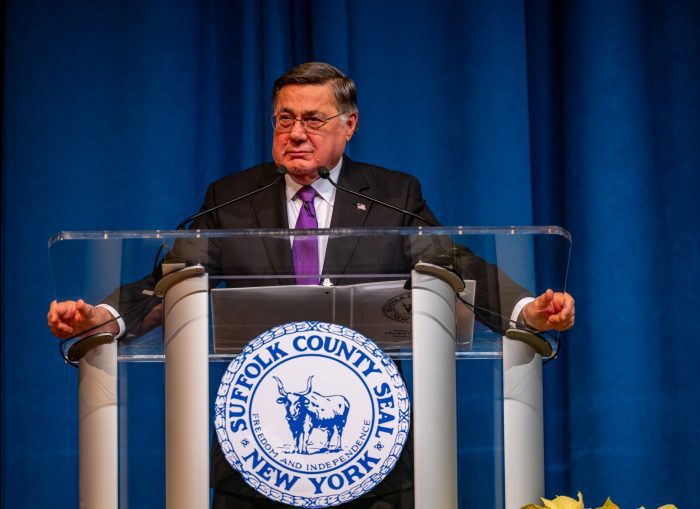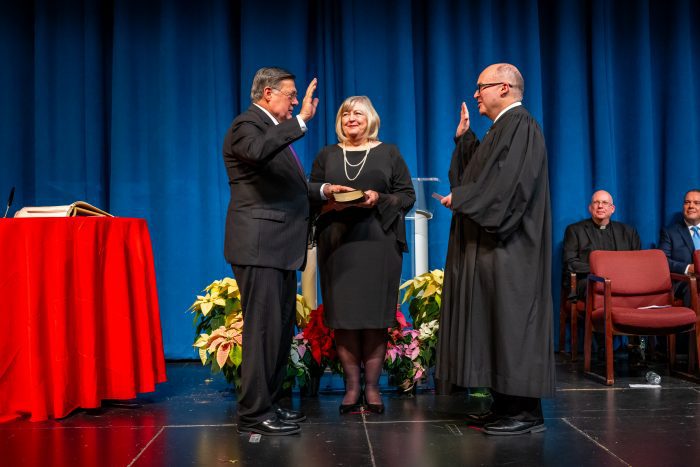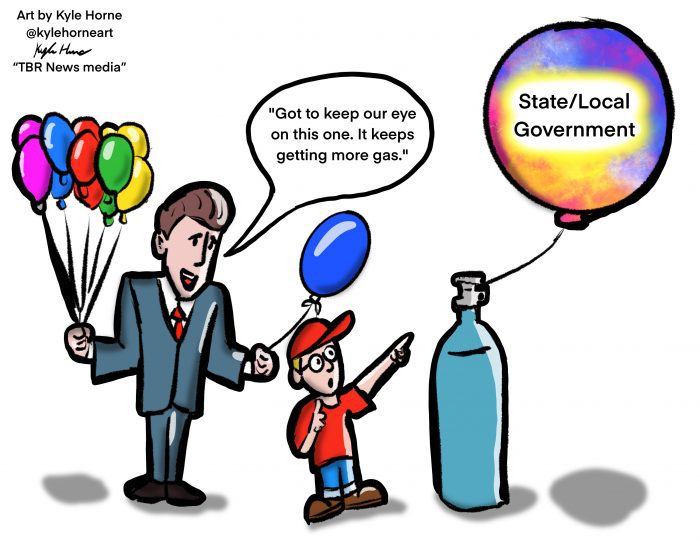By Lisa Scott
Federal priorities and legislation will be markedly different in 2025. Donald Trump received 55% of Suffolk County votes for President, and both CD1 and CD2 Republican members of Congress were re-elected. (CD3 includes a very small part of northwestern Huntington, and re-elected their Democratic member of Congress). As we move through the coming year, it will be very important to stay in touch with your Congressional representative and express your opinions. If you are not sure of your CD or other elected officials, go to https://voterlookup.elections.ny.gov/ and all your representative districts will be listed.
However, much of what affects our day-to-day lives is determined by New York State, Suffolk County and the 10 Towns that comprise Suffolk so our focus for 2025 should be familiarizing ourselves with local issues and finances, and making our voices heard on these local levels.
Suffolk County (according to the 2020 census) has a population of 1.5 million (578,940 households), with a 2024 Operating Budget Revenue of $5.172 billion and 2024 Operating Budget Expenditures of $4.133 billion. The taxable full valuation of property in the county is $405.5 billion.
Revenue comes from property taxes, sales tax, state aid, federal aid, and other sources. The revenue stream included in the budget is only an estimate of the amounts that can be anticipated. If retail sales fall, the 8.625% sales tax yield will not be as great as anticipated. Similarly, if homeowners and business owners do not promptly pay their property tax, there is a shortfall. The county may borrow money in anticipation of receiving this revenue; therefore, debt service may be required because of this borrowing.
Expenditures are for personnel, debt service, and a wide variety of services, such as police, education and economic assistance. About 39% of the $4.1 billion budget is mandated by various state and federal government programs, such as Medicaid, which restricts the freedom of the county to apportion expenditures. The remainder is “discretionary.”
Suffolk County’s proposed 2025 budget includes a tax increase for most homeowners, expected to average about $49 per home in Huntington, Smithtown and Brookhaven. The increase resulted from a shortfall in expected sales tax receipts, about $50 million less this year than what was projected, pension costs went up by about $43 million and health care costs went up by $66 million. Also Suffolk voters approved a clean water proposition in 2024; sales taxes will increase in March from 8.625% to 8.75% (about 12 cents on a $100 purchase or $1.25 on a $1,000 purchase).
Ed Romaine is our Suffolk County Executive ([email protected]) elected for a 4 year term. Other elected county-wide offices include Comptroller John M. Kennedy Jr. ([email protected]), Clerk Vincent Puleo ([email protected]), District Attorney Raymond A. Tierney ([email protected]) and Sheriff Errol Toulon, Jr. (suffolk.sheriff@suffolkcounty ny.gov).
There also is an 18 member Suffolk County Legislature, serving 2 year elected terms (term is limited to 12 years in office for all legislators). To find your SC Legislative District, go to https://www.scnylegislature.us/ and click on Find Your Representative. Then read up on your county legislator, find out what their priorities are and whether those are your priorities too. The General and committee meeting schedules are on the website, along with meeting minutes.
There are 13 committees which meet the week before each general (monthly) meeting of the Suffolk County Legislature to discuss proposed bills and issues and decide what moves forward to the full legislature. For example, the Veterans committee and Environment, Parks & Agriculture meet on Monday mornings, Economic Development, Planning and Housing on Wednesday afternoons and Public Safety on Thursday mornings.
Since there are 10 Towns in Suffolk, and many incorporated Villages, there are other levels of representation, ordinances and codes. Concerned citizens need to navigate these levels and establish relationships with all your elected officials, so that when a question or issue arises, you are aware of which level of government has responsibility. Remember that elected officials work for YOU, and if you do not communicate clearly and responsibly your message will not receive the attention and response it deserves.
To learn more about those who represent Suffolk County residents on every level of government and how to reach them, the League of Women Voters of Suffolk County issues an annual Directory of Public Officials in March, available online and as a pdf in English and in Spanish at https://my.lwv.org/new-york/suffolk-county.
Lisa Scott is president of the League of Women Voters of Suffolk County, a nonprofit, nonpartisan organization that encourages the informed and active participation of citizens in government and influences public policy through education and advocacy. For more information, visit https//my.lwv.org/new-york/suffolk-county.









